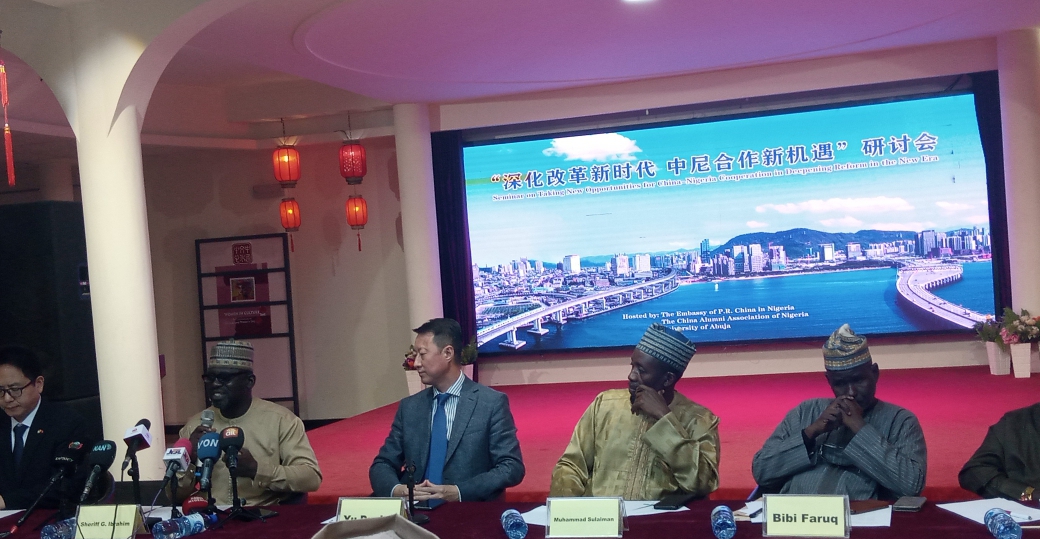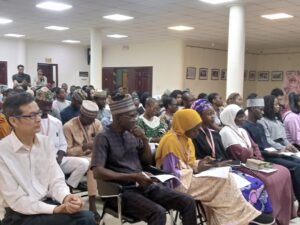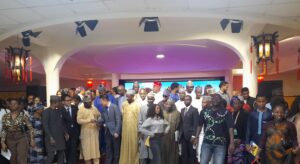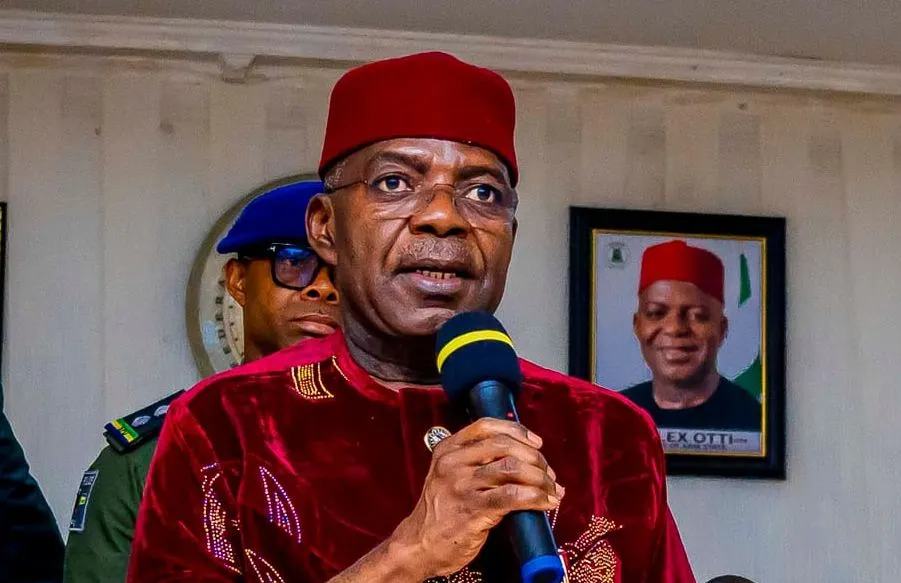News
China-Nigeria Relations Poised for Growth Amidst Global Reforms



News
Just in: Osun PDP receives defectors from APC, others

The Osun State Chapter of the People’s Democratic Party (PDP) has received thousands of decampees from the All Progressives Congress and other political parties into its fold.
The decampees, who are mostly from the Omisore Youth Support Forum (OYSF) joined the party at a ceremony held at party secretariat in Osogbo, the capital of Osun State, on Wednesday.
The were received by the Chairman of the PDP in Osun, Hon. Sunday Bisi, former Deputy Speaker of the House of Representatives, Lasun Yusuff and other party leader.
While receiving the decampees, Bisi renamed the group as Adeleke Youth Support Forum (AYSF) as they declared their support for Adeleke’s 2026 re-election bid.
One of the leaders of the decampees, Mr Francis Fasogbon said they were “inspired by the good governance delivered by Governor Ademola Adeleke”.
News
Hon. Dennis Agbo Resigns From Labour Party

Hon. Dennis Agbo, representing Igboeze North/Udenu Federal Constituency in the 10th House of Representatives, has resigned from the Labour Party (LP) and defected to the Peoples Democratic Party (PDP).
Addressing aa gathering in his ward, Ezzodo, Agbo cited his admiration for Enugu State Governor, Dr. Peter Ndubisi Mba’s performance, as the reason for his decision.
“I acknowledge Governor Mba’s outstanding work, and I believe it’s essential to support him,” Agbo said. “As a federal legislator from Enugu State, I’m joining hands with him to provide a link between the state and federal government, promoting the good work he’s doing to uplift our state.”
Agbo, who was elected on the LP ticket, expressed his desire to work with Governor Mba, citing the governor’s vision and achievements since his inauguration in 2023.
He also emphasized that the internal crisis and division within the Labour Party was part of the factors influencing his decision to leave the party and return to PDP.
The lawmaker invited his supporters and members of Labour Party to a formal ceremony marking his transition to PDP, scheduled for May 1, 2025, at the PDP State Secretariat in Enugu.
News
Gov Otti slams opposition in Abia, says”you’re all seeking relevance”

Governor Alex Otti says he is not bothered about the noise coming from members of the opposition parties in Abia State.
Otti said his critics should not be taken serious as they are not coming out to contest elections but to seek negotiations and relevance.
Governor Otti stated this while receiving the member representing Bende North constituency in Abia State House of Assembly, Nnamdi Ibekwe who recently dumped the PDP and joined the Labour Party, LP in Abia State.
“We are not bothered about the oppositions and their noise. There are different reasons why people show up for elections.
Sometimes, they just want recognition; that their names showed up for the primaries, knowing fully well that they will not win the election.
“Some of them also come for negotiations and then of course, some others also show up for projections; they look at themselves and say, ‘if I start the noise in 2025, maybe by 2040, they will know that I have been in the race and they will call me and recognize me’, so they are projecting themselves,” Gov. Otti explained.
Governor Otti said he is rather focused on doing the job the people elected him to do and respond to the noise of the opposition across the State.
He congratulated Nnamdi Ibekwe for dumping the PDP for LP, explaining that nobody pressured him to come over to the LP, reiterating that he does not emphasize much on political platforms.
Earlier while presenting himself to the Governor, the member representing Bende North constituency, Nnamdi Ibekwe said he was attracted to the Labour Party by the achievements of Governor Alex Otti which he described as unprecedented.
-

 Metro14 hours ago
Metro14 hours agoGunmen storm University of Benin teaching hospital, kill doctor
-

 Metro15 hours ago
Metro15 hours agoFCTA destroys 601 motorbikes over violations
-

 News14 hours ago
News14 hours agoJust in: FG declares tomorrow public holiday
-

 News6 hours ago
News6 hours agoAlleged money laundering: EFCC produces Aisha Achimugu in court
-

 News8 hours ago
News8 hours agoJUST IN: Major General Paul Ufuoma Omu Rtd, dies at 84
-

 News10 hours ago
News10 hours agoSAD! Professor’s son takes own life inside varsity staff quarters
-

 News7 hours ago
News7 hours agoTinubu hails Dangote’s World Bank appointment
-

 News14 hours ago
News14 hours agoFull list: FG approves N110bn to rehabilitate medical schools 18 institutions






